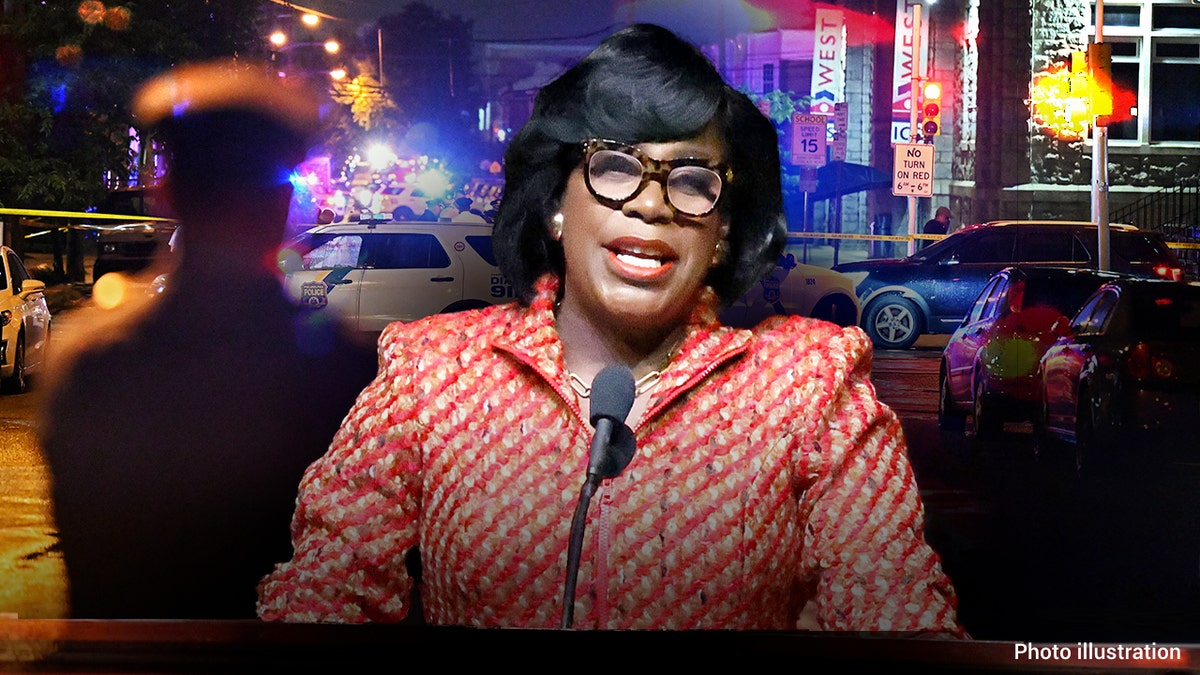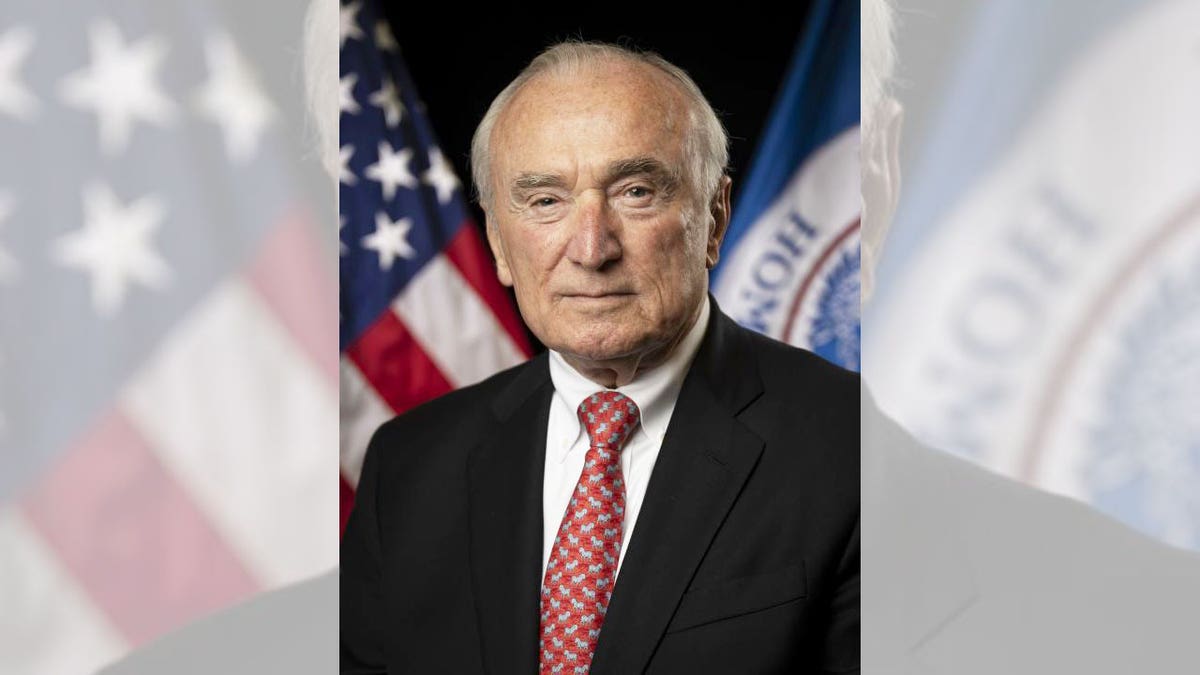'The district attorneys in many of those cities are failing to really enforce the law,' said former NYPD Commissioner Bill Bratton

FOX News
By Kyle Morris Fox News
Published
Out-of-control crime has plagued several major American cities in recent years, and a former top cop from New York City suggested some local leaders could be looking to distance themselves from their predecessors by spearheading efforts to regain control of their city and establish certain protocols through policing.
Just last week, the newly-elected mayor of Philadelphia declared a public safety emergency amid rampant crime throughout the city. In one of her first acts as mayor after being sworn in, Philadelphia Mayor Cherelle Parker signed an executive order declaring the emergency and directed police to develop "comprehensive plans" that address crime throughout the region.
The new order directs Police Commissioner Kevin J. Bethel, who was also sworn in last week, to work with Adam Thiel, the city's managing director, and other departments to develop a plan within 100 days to deal with the issue.
The plan, according to a report from The Philadelphia Inquirer, will include details about their efforts to hire additional police officers, reduce violent crime, address quality of life issues and "permanently shut down all pervasive open-air drug markets."

Philadelphia Mayor Cherelle Parker signed an executive order declaring a public safety emergency last week and directed police to develop "comprehensive plans" that address crime throughout the city.
(Getty Images)
Additionally, the plan directs Bethel to employ "any lawful means necessary to abate the public safety emergency."
Speaking to Fox News Digital, former New York City Police Commissioner Bill Bratton said he believes more cities are coming around to the fact they have to act on crime in a responsible and reasonable manner.
"You're starting to see that pendulum swing back," said Bratton, whose career in law enforcement spans more than 50 years. "I've watched that pendulum swing pretty far to the left, pretty far to the right. For a particular time, particularly over the last couple of years after the George Floyd murder, it really swung too far to the left."
Bratton said there are a number of reasons major American cities are struggling to take control of crime and insisted that efforts like the defund the police movement, which he noted has started to decline "fairly rapidly around the country," can have a negative impact on police morale.
Pointing to specific, liberal-led cities like Philadelphia, New York, Baltimore, San Francisco, Portland and Seattle — all of which he considered to be "progressive woke" cities — Bratton said the crime in those communities is "tearing at the fabric" of the community.

Bratton, who serves as co-chair of the Homeland Security Advisory Council, served seven years as Chief of the Los Angeles Police Department and two nonconsecutive terms as police commissioner of New York City.
(U.S. Department of Homeland Security)
"In those cities, what you're seeing is a breakdown in the criminal justice system because the criminal justice system is only effective when it functions as a system," said Bratton, who has led six police departments. "The system has broken down in that the district attorneys in many of those cities are failing to really enforce the law as it relates particularly to lighter offenses.
"There was a very strong effort over the last several years to decriminalize, to deinstitutionalize, to find alternatives to arrest and jailing and detention. Very appropriate. You'd like to have meaningful reforms that would require fewer people to have criminal records, but, at the same time, you can't ignore those offenses totally. And that's what has been going on to the detriment of many cities."
Bratton said he believes local leaders in several of the nation's largest cities are beginning to see what kind of toll crime is taking on their communities because it repeatedly hinders the "quality of life" in their communities, specifically minority communities.
"The rampant shoplifting that is causing many stores like CVS and Target to close, particularly in minority areas and cities," Bratton said, has been "unaddressed" for too long.
Out-of-control crime in big cities, he concluded, impacts people's choices, property values and quality of life.
"The good news, from my perspective, is that the pendulum that really went much too far to the left is inching back towards the center where it belongs," he said of crime throughout the United States.
During his tenure as police commissioner for the largest city in the '90s, Bratton's use of the broken windows model, which he said is "basically quality-of-life policing" and an "essential component" for officers to do their jobs effectively, reduced overall crime in New York City by large margins.
Prior to the Broken Windows model being implemented in New York City in 1990, the city accounted for 9.6% of the nation's homicides. That number dropped to 2.4% by 2013, according to the New York Post.
Offering advice to cities looking to take control of crime, Bratton said there are three words that start with the letter C that local leaders and officers need to follow to be effective — constitutionally, compassionately and consistently.
"Do it constitutionally, legally. Do it compassionately in dealing with people," he said. "But you also need to deal with it consistently. … At all times you have to do it in a transparent manner."
In announcing her 100-Day Action Plan last week, Mayor Parker said, "I am fully committed to ending the sense of lawlessness that has been so pervasive in our city and bringing back order and lawfulness. … We will pursue those who harm and traumatize our neighborhoods across the city."
Parker, who was elected in November, also vowed her plan will "expeditiously get every available resource into neighborhoods struggling from scourges of crime, gun violence, drugs and addiction."
"There is a lot of work to be done. Mark my words. What you see here today is only the beginning," she said.
The decision by Parker to take action against crime throughout the city differs greatly from that of her Democratic predecessor, former Philadelphia Mayor Jim Kenney, who seemingly resisted calls to do the same thing.
Parker's declaration comes as Philadelphia works to tackle its crime crisis, which has discouraged people from moving to the city and hindered recruiting efforts by the city's police department. A CBS News Philadelphia report from November found that the Philadelphia Police force was down nearly 1,000 officers.
Police in the "City of Brotherly Love" reported 410 homicides in 2023, lower than last year's total of 514, but still high compared to other populous cities around the country.
From Nov. 6 to Dec. 31, the Philadelphia Police Department reported a total of 1,855 violent crime offenses, which include homicides, rape, robbery with a weapon and aggravated assault with a weapon. During the same period, the city's police reported 10,722 property crime offenses, which included burglary and theft.
The Associated Press contributed to this report.